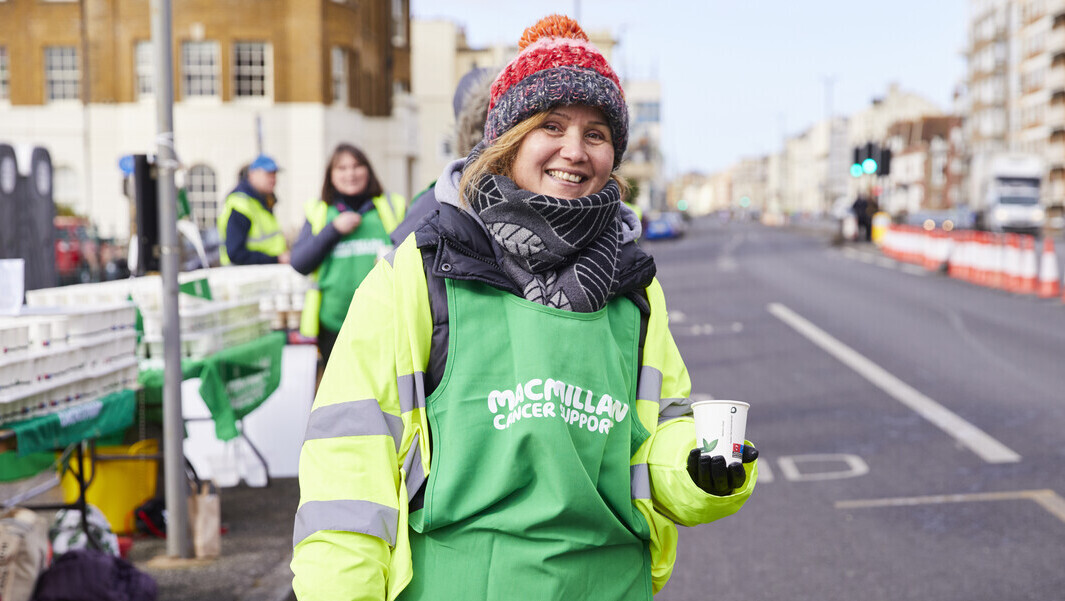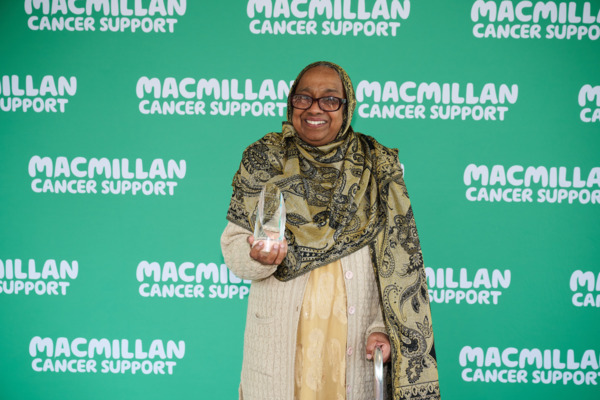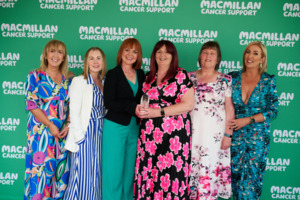"Towards the end of 2020, my employer at the time was a partner with Macmillan. Together, the two organisations were recruiting people to volunteer to be telephone buddies.
"We were told about how people living with cancer were stuck at home. And that they might be worried about isolation and struggling with the impacts of coronavirus.
"I identified with this message and thought about what it would have been like for my dad and family to have gone through cancer during the pandemic."
Stewart's father died of mesothelioma, a lung cancer caused by asbestos.
"Even though my dad had support from family and friends, I know he felt isolated. He never had an impartial person to speak to as friends and family are always emotionally involved."
"We were told about how people living with cancer were stuck at home. And that they might be worried about isolation and struggling with the impacts of coronavirus.
"I identified with this message and thought about what it would have been like for my dad and family to have gone through cancer during the pandemic."
Stewart's father died of mesothelioma, a lung cancer caused by asbestos.
"Even though my dad had support from family and friends, I know he felt isolated. He never had an impartial person to speak to as friends and family are always emotionally involved."
"I give people space to talk about cancer without feeling embarrassed."
Since becoming a telephone buddy, Stewart has supported over several people from different backgrounds.
"I think there is something really special about supporting someone over the phone. I'm there as a listening ear, for a warm-hearted conversation. I care how they get on, but I am not emotionally invested like a family member or friend is.
"They can speak to me more candidly because we don't know each other and they don't need to worry about upsetting me."
Stewart states that his confidence has helped him to build a good relationship with the individuals he supports.
"When I started volunteering, I was confident I would enjoy it. I'm an extrovert and I like meeting new people and finding out about them. But I also recognise the other person might not be like that.
"So when I start supporting someone new, I go into it with a clean slate and often my confidence in the situation will rub off on them."
"I think there is something really special about supporting someone over the phone. I'm there as a listening ear, for a warm-hearted conversation. I care how they get on, but I am not emotionally invested like a family member or friend is.
"They can speak to me more candidly because we don't know each other and they don't need to worry about upsetting me."
Stewart states that his confidence has helped him to build a good relationship with the individuals he supports.
"When I started volunteering, I was confident I would enjoy it. I'm an extrovert and I like meeting new people and finding out about them. But I also recognise the other person might not be like that.
"So when I start supporting someone new, I go into it with a clean slate and often my confidence in the situation will rub off on them."
"There have been times when I know a call is going to be tough, but I know I can help the other person."
Stewart states that not every conversation he has is about cancer.
"Maybe 10-20% of calls will be about their cancer worries and concerns. But the rest of the call is about other things - people's hopes and aspirations, what they love to do, their passions and hobbies.
"This is quite different from a lot of the conversations they will be having with others - especially their healthcare team. I give people space to talk about cancer without feeling embarrassed as cancer professionals can be daunting to speak to."
Stewart has said that being a volunteer is one of the most rewarding things he has done.
"I am proud to be a volunteer buddy. There have been times when I know the call is going to be tough, but I know I can help the other person.
"If you feel like you want to help people, you will make things better. No one is expecting you to fix the situation, but you can help their spirit, their soul and their emotions. It’s all part of the journey and sometimes that is overlooked by others."
"Maybe 10-20% of calls will be about their cancer worries and concerns. But the rest of the call is about other things - people's hopes and aspirations, what they love to do, their passions and hobbies.
"This is quite different from a lot of the conversations they will be having with others - especially their healthcare team. I give people space to talk about cancer without feeling embarrassed as cancer professionals can be daunting to speak to."
Stewart has said that being a volunteer is one of the most rewarding things he has done.
"I am proud to be a volunteer buddy. There have been times when I know the call is going to be tough, but I know I can help the other person.
"If you feel like you want to help people, you will make things better. No one is expecting you to fix the situation, but you can help their spirit, their soul and their emotions. It’s all part of the journey and sometimes that is overlooked by others."






